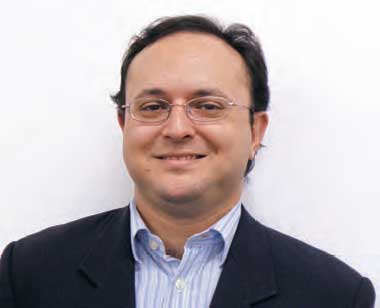Denis Benchimol Minev, WG’03, was one of the few people who actually got what he wanted at the Copenhagen Climate Conference last December.
Minev attended the event as Secretary of Planning and Economic Development for the Brazilian state of Amazonas, where he recently spent three years seeking a sustainable balance between economic growth and forest preservation. His attendance was one of his last official acts before leaving public service to rejoin his family’s retail and energy businesses. (His family owns Sociedade Fogás and Lojas Bemol in Manaus)
Hopes ran high for the conference. With the Kyoto Protocol set to expire in 2012, time was running out for world leaders to begin implementing a new international agreement on reducing carbon emissions.
Two weeks of divisive talks ended with little accomplished … except one thing. Participants acknowledged that developed countries should provide financial incentives to developing tropical countries to reduce deforestation—a policy that delegates from Brazil and Amazonas had been advocating since the Bali climate conference in 2007. The Copenhagen event marked the first time there was global agreement to finance forest preservation as a strategy to combat climate change.
“Despite global failure of negotiations, forests and REDD [Reductions in Emissions from Deforestation and forest Degradation] took a primary role and became the only point of agreement,” said Minev, 33. “Copenhagen was bad, in that nobody committed to anything, but for us, it was good.”
True to their word, developed nations in May pledged $4 billion to launch a new program—REDD Plus.
During his time in government, Minev presided over a major philosophical shift in how the state stewards its land, which is 98 percent virgin rainforest.
Major arteries of the Amazon River flow through the sparsely populated region twice the size of Texas, feeding a dense ecosystem that represents 20 percent of the world’s tropical rainforests. Scientists have estimated that ending deforestation will do more to limit carbon in the atmosphere than eliminating all of the world’s cars, planes and ships put together.
Minev and Eduardo Braga, the governor of Amazonas who invited Minev into government in 2007, worked to bring the state’s rate of deforestation to virtually zero. Since 2002, annual deforestation has declined 75 percent. During a speech at Copenhagen, Governor Braga announced that now just 0.03 percent the state’s land, or 400 square kilometers, is lost to farming each year. The bottom line? New industries seeking to clear land are no longer welcome in Amazonas.
“We made it the formal policy that unless it’s on already deforested land—which is two percent of the state—that’s not something we want in Amazonas,” said Minev.
Of course, remaking Amazonas into a green brand meant learning to say no, he said.
“This goes straight back to Wharton,” said Minev, who finished his MBA at Wharton in 2003. “I remember from strategy class that the heart of strategy is being able to tell what you’re not going to do. Telling what you’re going to do is easy but telling what you’re not going to do—like when you’re going to say no to your customer—is much harder. There has historically been a lot of cattle breeding in the state, but if a new investor came in today and said ‘I want to bring my cattle into Amazonas’, the answer is, ‘If you can find a place that has already been deforested, fine, but if you want to take them to a new place we won’t grant your license.’”
The state also pays households and communities “forest conservation grants” to discourage them from clearing more of their land.
“We want to be the best preserved state in Brazil,” said Minev.
Now the focus is on attracting industries that leave the rainforest intact. Amazonas eliminated all taxes on cosmetics that use forest-produced products and subsidized the startup of a rubber industry to make tires for automobile companies. It made bidding documents and state payments public for transparency.
Minev also took steps to improve government efficiency, using more lessons from Wharton. Within his office, he dramatically reduced the amount of time it takes to open a new business and automated the system of awarding incentives by implementing ISO 9000 quality management standards borrowed from business. These standards were also put in place in five other state institutions, with 15 more to come. For the first time, the government was able to track 5,000 points of data relating to efficiency in areas like public safety, law enforcement and hospital care. “You can only manage something you can measure,” Minev said. “You learn that in pretty much every class in Wharton—you need to know the numbers and be quantitative. This was part of the culture I tried to bring into the government.”
Still up in the air, however, is how Amazonas will fund its conservation efforts.
Norway pledged $1 billion over ten years to Brazil for forest conservation. Other countries have promised a few billion more, though the actual money has yet to be seen. Amazonas created a foundation, Fundação Amazonas Sustentável, that has raised about $30 million from sources such as Coca-Cola, Banco Bradesco and Marriott.
It’s a start, says Minev, but it’s not nearly enough.
“McKinsey estimated it would take $30 billion per year to eliminate deforestation in the world,” he said. “I think that number is about right.”
Though state economic growth has been a healthy seven percent during Minev’s tenure, he said growth could have been higher had the state ignored conservation.
“I can tell you with certainty that we could have achieved short-term higher rates of growth had we opened up the forest to palm oil,” he said. “We see there’s an international value in preserving the forest, but we expect the world to share in the cost, which is significant in terms of opportunity cost.”

























